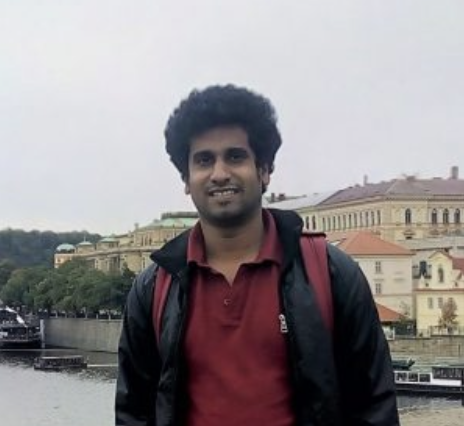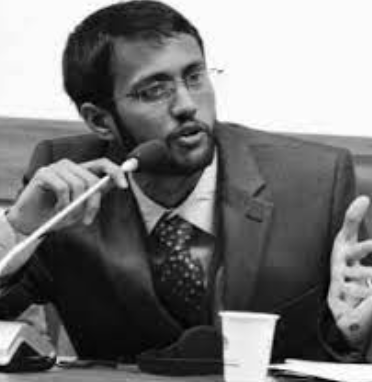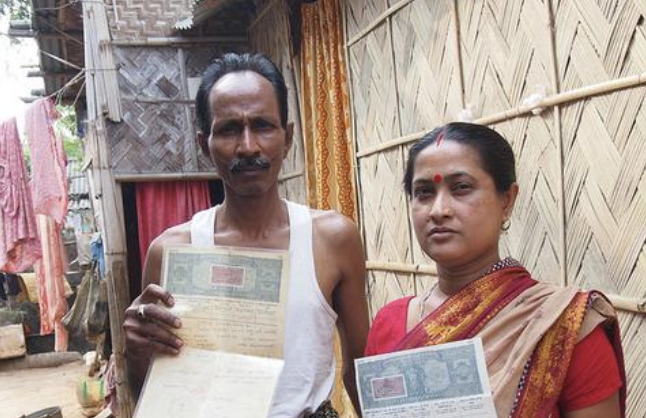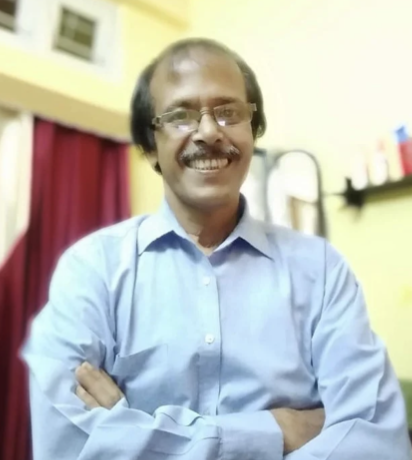Access the Patrika here:
VOLUME VII ISSUE II
In This Issue
In this Issue, the team unpacks the issue of D-voters in Assam, which is a complex and longstanding problem with far-reaching implications for individuals and the state’s socio-political fabric. The lack of clear definitions and the potential for misuse of power during the identification process raise significant fairness and human rights concerns. The deprivation of voting rights, social stigmatization, and exclusion from essential services exacerbate the challenges faced by those affected. Addressing this issue demands a comprehensive and compassionate approach, prioritizing inclusivity, democratic values, and the utmost respect for human dignity.
Awaaz In Focus
For Awaaz in Focus, we speak with Dr. Salah Punathil, who emphasizes that the concept of precarious citizenship is used to transcend categories like illegal migrants and refugees, allowing a focus on those with partial citizenship benefits. In Assam, the D-voter category represents precarious citizens – individuals neither fully stripped of citizenship nor granted its full benefits. He talks to us about how the history of Assam’s citizenship crisis is essential to understanding current debates. The shift from IMDT Act to Foreigners’ Tribunals altered the burden of proof, impacting the D-voters’ citizenship claims. The reliance on documents for citizenship verification poses difficulties, given lack of access, discrepancies, and natural calamities like floods. Further, biases within state mechanisms contribute to arbitrary exclusion, affecting religious, ethnic, and gender groups. Instances of errors, deaths, and illogical categorizations underline the flawed nature of citizenship assessment. Lack of awareness, financial support, and proper legal representation compounds challenges for D-voters.

Vichaar
In this edition of Vichaar, we speak to Prof. Anubhav Dutt Tiwari, and we investigate the legal limbo, these individuals find themselves in, often facing disenfranchisement and restricted access to essential rights due to their unresolved citizenship status.

Special Segment
For the Special Segment, the team has conducted primary interviews with the D-voters of Assam to unpack the different ways in which the economic incapacity among the D-voters pushes them further into poverty. The field interviews were conducted in the town of Silchar in the Cachar district, and used as shreds of evidence to highlight how the legal battle proves to be expensive and the ways in which the D-voters manage their finances. While some interviewees share their experiences of selling off their livestock and assets such as mobile phones to meet their expenses, others claim to take loans from external sources at high rates of interest.

Nazariya
The Nazariya piece highlights the ways in which the linguistic and religious identities play a role in the identity politics. Mostly the Bengali Muslims have to face the full force of the ‘othering’ process enforced throughout the post-colonial history, continuing with the British policies of allowing ethnic tensions to foster. It outlines how the othering of the Muslim community comes at the backdrop of the global migration crises, coupled with the rising identity politics, which has led to questions of sovereignty and citizenship being taken place.
TalkPoint
For Talkpoint, we speak to human rights activist Kamal Chakraborty, who has been involved in helping the people affected by the ongoing citizenship crisis in Assam, for the past eight years. Given that he has worked mainly in the Barak Valley region and specifically the Cachar district, Chakraborty tells us about the condition of D-voters from that region. He claims that the D-voter tag is nothing but problematic, and hence, should stop being functional.

